
How to Start a Company in Japan: Step-by-Step Guide for Foreign Companies 2025?
Do you happen to be a foreigner looking to try your hand in a Japanese venture? It's a good choice since Japan presents a simple integration process due to its friendly ecosystem and dedication to globalization.
Initiatives to make the integration of Japanese enterprises by foreign businesses and entrepreneurs has been taken care of by the government. It is eager to increase its foreign direct investments (FDIs). Business formation in Japan might seem a little intimidating at first. But with knowledge of the legal and formalities involved by law and country officialdom and country business culture, it will be a cakewalk. Proper guidance will remove the obstacles and an entity will be successfully formed in Japan.
Business Opportunities in Japan
Investors interested in doing business in Japan as non-residents can look at these sectors. Being a country full of innovation, it has all the needs for successful business establishment. Some of the lucrative areas of business in Japan are enumerated below:
- Green Technology, Sustainability, and Energy
- Tech-related and IT Startups, including Digital Technology
- Manufacturing
- Biotechnology and Healthcare
- Consulting Services
Types of Business Structures in Japan
Before you go ahead to understand how to setup a business in Japan, you must understand the different types of business legal structures that are available in Japan:
- Limited Liability Company (Godo Kaisha)
Godo Kaisha, is a Japanese expression for limited liability company. It is like an LLC in the US. The company is liberal and charge low registration fees, and therefore small firms prefer it.
- Stock Company (Kabushiki Kaisha)
Stock Company is the most common business structure in Japan. This structure needs board of directors and shareholders. It is preferred by large and established companies.
- Branch Offices
Foreign business companies who want to expand their business in Japan can open branch offices there. These offices can conduct business, open bank accounts, and rent offices independently.
- Representative Offices
It is setup with an aim to conduct research & liaison activities in Japan and it cannot participate in commercial operations.
- Time Period & Structure
The time period to establish an entity in Japan is around 2-3 months and the most common legal structure is Limited Liability Company (Godo Kaisha) and Stock Company (Kabushiki Kaisha). The table below depicts the difference between both of them:
|
Features |
Kabushiki Kaisha (KK) |
Godo Kaisha (GK) |
|
Equity Holder |
Shareholders (“Kabu-nushi”) |
Members of the company (“Shain”) |
|
Liability |
Limited Liability |
Limited Liability |
|
Decision-making Body |
General meeting of shareholders |
Meeting of members |
|
Authority Person |
Director |
Non-shareholders can also be appointed as Directors |
|
Term of Office |
1-2 years for Directors, 3-4 years for Auditor |
No specified term |
|
Management Structure |
Board of Directors |
Members |
|
Voting Rights |
No. of proportionate shares held by each shareholder |
One vote for each member (changes subject to Articles of Association) |
|
Statement of Financial |
Publication Required |
Publication not Required |
|
Distribution of Profits |
Proportionate basis |
Proportionate basis |
|
Requirement of Minimum Capital |
1 Yen |
1 Yen |
|
Incorporation Cost |
¥250,000 approximately |
¥100,000 approximately |
Step-By-Step Company Registration Process
If you are a foreigner and you want to start a business in Japan, then the following is a step-by-step company registration process.
1. Selecting an appropriate company name: Ensure that the company name is unique and not already registered. Spelling out the name in Japanese characters would be a good idea.
Choice of the name is vital in company incorporation in Japan. For selecting a Japanese business name, remember cultural sensitivities. Japanese culture revolves around respect, tradition, and harmony. The company name should never misinterpret or disrespect these things. Keep the company name unique and no company is registered using it. One should abstain from trademark infringement or to have complicated names.
2. Articles of Incorporation drafting: Draft the Articles of Incorporation, including the company name, objectives, and details about directors and shareholders.
3. Submission of documents: Preparation of documents so as to submit it with Legal Affairs Bureau.
4. Capital value depositing: A Bank account is opened to initially deposit the nominal capital amount.
5. Registration of a company: Provide the certificate of deposit of capital, Articles of Incorporation, and other related documents to Legal Affairs Bureau for registration.
6. Create a company seal: Be sure to design a company seal and get it register. This shall be used on all official documents.
7. Bank account opening: On completion of registration, open a permanent account for all the business dealings.
8. Acquisition of necessary business licenses: The entrepreneur must have the necessary permits and licenses to conduct business in Japan. They can be obtained after company registration.
9. Notify the tax office: Inform the tax office and other tax agencies for taxation purposes.
Documentation Required
- Registration application: This application provides the principal objects and general items of the business. Make sure a Japanese copy of the application is submitted.
- Articles of Incorporation: Articles of Incorporation disclose the business's different rules and regulations.
- Certificate of paid-in capital: This certificate is used to state that the business has paid the capital amount.
- Letter of Acceptance of Assumption of Office: This certificate is used to state that a company director has been appointed.
- List of directors, shareholders, and addresses. Additionally, it is not required to have a representative director in Japan for Japanese company incorporation. In the event that you do not have a representative director and are not living in Japan, you can still become a director by having a business investor visa.
- Valid Passport
- Director/Founder Certificate of Seal Registration: Non-residents who are exempted from having a certificate of seal registration must present a certificate of signature.
- Seal Registration Certificate: The company's official seal is registered with the Legal Affairs Bureau via this certificate.
- Business Plan and details of business activities.
Government Support for Foreign Companies
Japanese businessmen who want to set up a company in Japan as foreign nationals are well supported by the Japanese government. Prospective business individuals and investors are given various kinds of grants and incentives:
- JETRO Support: Financial assistance and foreign business guidance services are facilitated by the Japan External Trade Organization (JETRO). Financial assistance includes reductions in office rent leasing and workers' wages, which can be utilized by businessmen to cover preliminary setup costs.
- Local Government Grants: Certain states' governments of Japan offer quite interesting grants like subsidies, tax relief, and other incentives for foreign entrepreneurs as well as investors.
- Subsidies to Innovative Projects: Subsidies and financial assistance are offered to innovative enterprises or ventures that conduct research or innovative technologies.
- Industry-Specific Government Schemes: Industry-specific government schemes are available for foreign investors. Schemes are available to assist business houses that offer rebates to setup expenses.
- Special Zones: Companies operating in special zones are offered tax benefits, assistance, and simplified regulatory processes.
How SKMC Global Can Help?
If you are planning to start a new business venture in Japan, you must prepare. You must conduct some research, get to know market demands and trends, and study the business situation in Japan. Incorporation of a company in Japan is a tedious & complicated process as it must be conducted in Japanese. SKMC has a team of dedicated professionals and has a presence in India as well in Japan. We have a comprehensive knowledge of Japanese laws & regulations. With the help of our experts, we help clients in understanding the business environment of Japan and setting up of business in Japan. Accordingly, establishing a Japanese company with the help of right partner becomes easy. SKMC Global offers tailored end to end solutions which suits the needs of a client to set up a company in Japan.
Recent Posts
-
 Union Budget 2026 updates...
Feb 02,2026
Union Budget 2026 updates...
Feb 02,2026
-
 SEBI’s New Co-Investment Framework for AIFs: An ...
Jan 14,2026
SEBI’s New Co-Investment Framework for AIFs: An ...
Jan 14,2026
-
 Incorporation of Company in Saudi Arabia...
Jan 05,2026
Incorporation of Company in Saudi Arabia...
Jan 05,2026
-
 Changes in Financial Reporting as per IFRS 18...
Dec 31,2025
Changes in Financial Reporting as per IFRS 18...
Dec 31,2025
-
 Digital Personal Data Protection Act Implementatio...
Dec 30,2025
Digital Personal Data Protection Act Implementatio...
Dec 30,2025
-
 How to setup a Semiconductor Unit in Gujarat...
Dec 26,2025
How to setup a Semiconductor Unit in Gujarat...
Dec 26,2025
-
 Process of Setting Up a Gratuity Fund Trust in Ind...
Dec 18,2025
Process of Setting Up a Gratuity Fund Trust in Ind...
Dec 18,2025
-
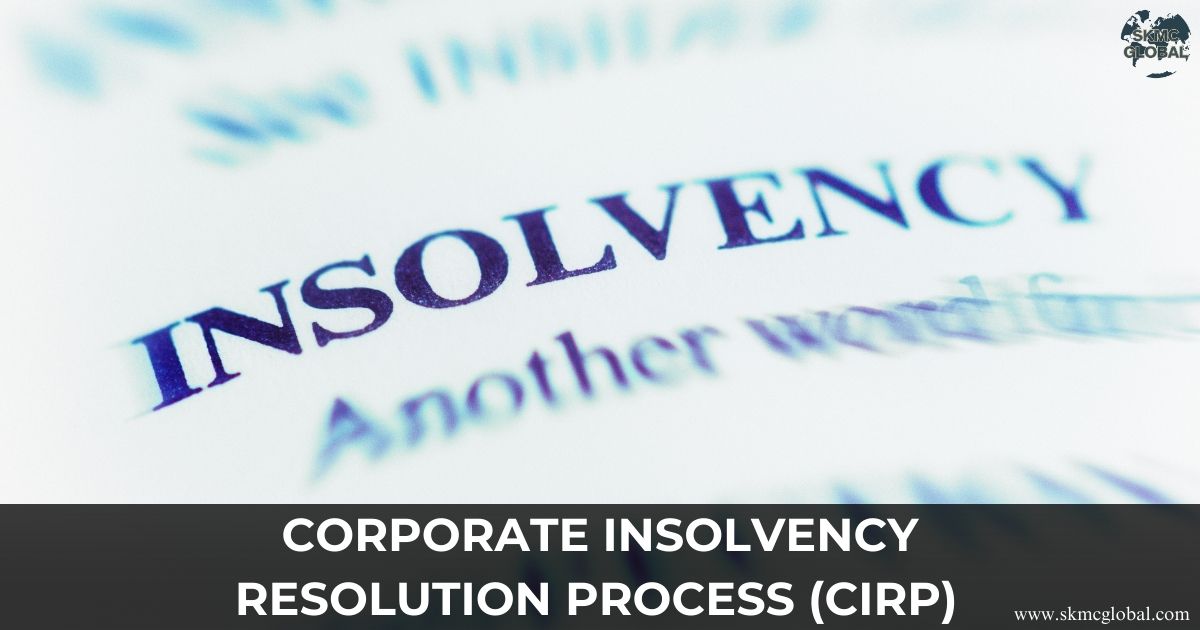 Corporate Insolvency Resolution Process (CIRP) und...
Dec 17,2025
Corporate Insolvency Resolution Process (CIRP) und...
Dec 17,2025
-
 Closure of a company in India...
Dec 12,2025
Closure of a company in India...
Dec 12,2025
-
 Importance of Black Money Act 2015...
Dec 11,2025
Importance of Black Money Act 2015...
Dec 11,2025
-
 What are undisclosed assets and income under Black...
Dec 08,2025
What are undisclosed assets and income under Black...
Dec 08,2025
-
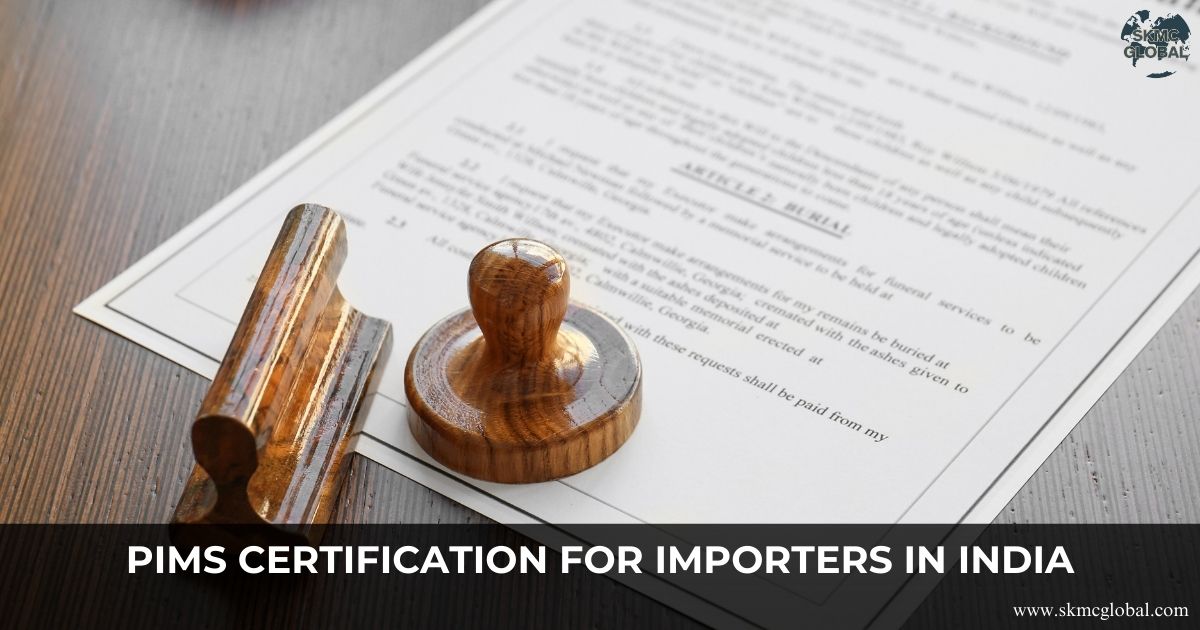 Importance of PIMS certification for Importers in ...
Dec 06,2025
Importance of PIMS certification for Importers in ...
Dec 06,2025
-
 Incorporation of Company in UAE...
Dec 03,2025
Incorporation of Company in UAE...
Dec 03,2025
-
 Legal Entity Identifier LEI - Purpose and Applicab...
Dec 01,2025
Legal Entity Identifier LEI - Purpose and Applicab...
Dec 01,2025
-
 Implementation of New Labour Codes 2025...
Nov 29,2025
Implementation of New Labour Codes 2025...
Nov 29,2025
-
 A Step-by-Step Guide to a Smooth Payroll Outsourci...
Nov 28,2025
A Step-by-Step Guide to a Smooth Payroll Outsourci...
Nov 28,2025
-
 PESO Certification in India...
Nov 26,2025
PESO Certification in India...
Nov 26,2025
-
 Family Trusts for NRIs- Managing Indian Assets fro...
Nov 24,2025
Family Trusts for NRIs- Managing Indian Assets fro...
Nov 24,2025
-
 Decoding Disclosures: Section 184 of Companies Act...
Nov 21,2025
Decoding Disclosures: Section 184 of Companies Act...
Nov 21,2025
-
 All you want to know about Recycling business in I...
Nov 20,2025
All you want to know about Recycling business in I...
Nov 20,2025
-
 What is Seed Fund Scheme and its relevance for Sta...
Nov 19,2025
What is Seed Fund Scheme and its relevance for Sta...
Nov 19,2025
-
 Incorporation of Company in Singapore...
Nov 18,2025
Incorporation of Company in Singapore...
Nov 18,2025
-
 How to upgrade your AEO T2 certification to AEO T3...
Nov 15,2025
How to upgrade your AEO T2 certification to AEO T3...
Nov 15,2025
-
 What is the relevance of APEDA Registration and it...
Nov 14,2025
What is the relevance of APEDA Registration and it...
Nov 14,2025
-
 Applicability of Indian Accounting Standards for c...
Nov 11,2025
Applicability of Indian Accounting Standards for c...
Nov 11,2025
-
 Public vs. Private Trust: key Differences in Regis...
Oct 28,2025
Public vs. Private Trust: key Differences in Regis...
Oct 28,2025
-
 Donation and Foreign Contributions to Trusts in In...
Oct 23,2025
Donation and Foreign Contributions to Trusts in In...
Oct 23,2025
-
 Redeemable Preference Shares as a Financial Tool...
Oct 22,2025
Redeemable Preference Shares as a Financial Tool...
Oct 22,2025
-
 STPI Unit and Non-STPI Unit...
Oct 16,2025
STPI Unit and Non-STPI Unit...
Oct 16,2025
-
 Country-by-Country Reporting (CbCR) and Its Evolvi...
Oct 09,2025
Country-by-Country Reporting (CbCR) and Its Evolvi...
Oct 09,2025
-
 What is Free Trade Agreement and Certificate of Or...
Oct 08,2025
What is Free Trade Agreement and Certificate of Or...
Oct 08,2025
-
 What is the relevance of status holders certificat...
Oct 06,2025
What is the relevance of status holders certificat...
Oct 06,2025
-
 Redemption of Advance Authorization under Foreign ...
Oct 04,2025
Redemption of Advance Authorization under Foreign ...
Oct 04,2025
-
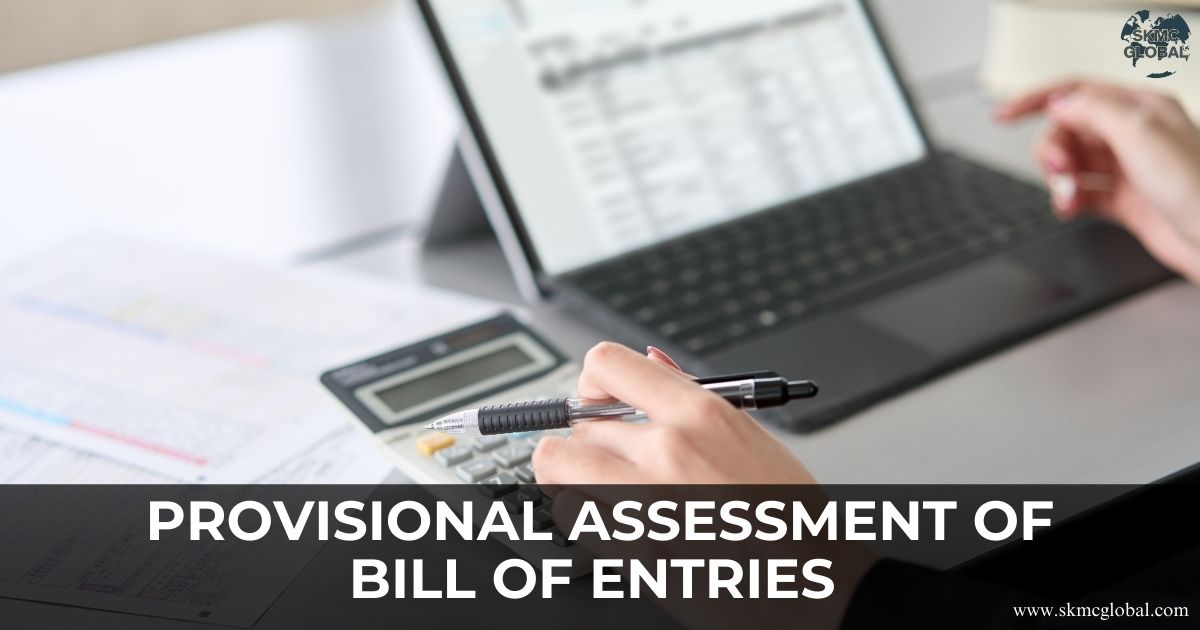 What is provisional assessment of Bill of Entries ...
Sep 29,2025
What is provisional assessment of Bill of Entries ...
Sep 29,2025
-
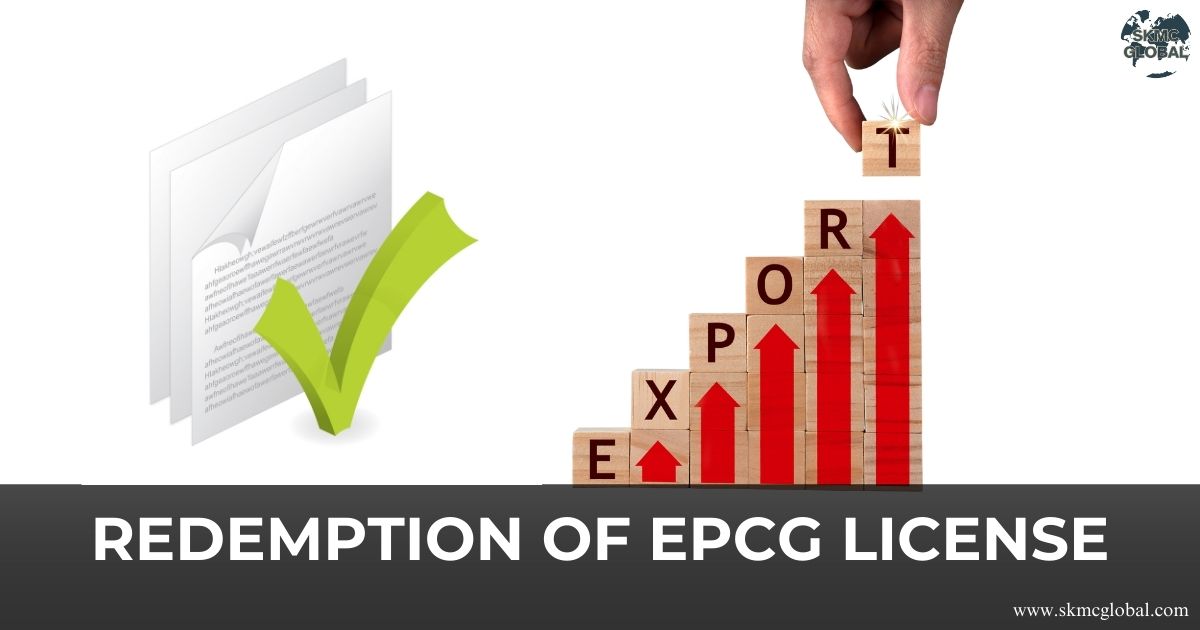 Redemption of EPCG License...
Sep 26,2025
Redemption of EPCG License...
Sep 26,2025
-
 MOOWR (Manufacturing and Other Operations in Wareh...
Sep 24,2025
MOOWR (Manufacturing and Other Operations in Wareh...
Sep 24,2025
-
 Procedure to Apply SCOMET License...
Sep 22,2025
Procedure to Apply SCOMET License...
Sep 22,2025
-
 Landscape of Semiconductor Industry while Doing Bu...
Sep 18,2025
Landscape of Semiconductor Industry while Doing Bu...
Sep 18,2025
-
 The Hidden Costs of In-House Accounting v/s Outsou...
Sep 17,2025
The Hidden Costs of In-House Accounting v/s Outsou...
Sep 17,2025
-
 TDS on sale of immovable property by an nri...
Sep 10,2025
TDS on sale of immovable property by an nri...
Sep 10,2025
-
 Setting up a Project Office in India...
Sep 08,2025
Setting up a Project Office in India...
Sep 08,2025
-
 Tax Implication for Transferring NRO Funds to NRE ...
Sep 05,2025
Tax Implication for Transferring NRO Funds to NRE ...
Sep 05,2025
-
 How outsourcing CFO services helps the corporates ...
Aug 27,2025
How outsourcing CFO services helps the corporates ...
Aug 27,2025
-
 Why a Periodical Cash Flow Statement is Necessary ...
Aug 26,2025
Why a Periodical Cash Flow Statement is Necessary ...
Aug 26,2025
-
 What is FATCA and CRS reporting and its difference...
Aug 22,2025
What is FATCA and CRS reporting and its difference...
Aug 22,2025
-
 What are unclaimed TDS Credits and how to claim it...
Aug 21,2025
What are unclaimed TDS Credits and how to claim it...
Aug 21,2025
-
 Digital Taxation is reshaping Tax Nexus Between Ju...
Aug 20,2025
Digital Taxation is reshaping Tax Nexus Between Ju...
Aug 20,2025
-
 Procedure to Take PF Registration and Its Complian...
Aug 18,2025
Procedure to Take PF Registration and Its Complian...
Aug 18,2025
-
 Procedure to take PSARA License...
Aug 11,2025
Procedure to take PSARA License...
Aug 11,2025
-
 Mandatory factory license while setting up manufac...
Aug 08,2025
Mandatory factory license while setting up manufac...
Aug 08,2025
-
 Procedure for obtaining NBFC Registration in India...
Aug 04,2025
Procedure for obtaining NBFC Registration in India...
Aug 04,2025
-
 FSSAI License registration for Food Business...
Jul 14,2025
FSSAI License registration for Food Business...
Jul 14,2025
-
 How Management Information System (MIS) reporting ...
Jul 11,2025
How Management Information System (MIS) reporting ...
Jul 11,2025
-
 IFRS 9 impairment- A complete guide...
Jul 12,2025
IFRS 9 impairment- A complete guide...
Jul 12,2025
-
 Why most of the companies are shifting to hr and p...
Jul 10,2025
Why most of the companies are shifting to hr and p...
Jul 10,2025
-
 A complete guide on valuation of shares...
Jul 10,2025
A complete guide on valuation of shares...
Jul 10,2025
-
 BIS registration for foreign manufacturer...
Jul 09,2025
BIS registration for foreign manufacturer...
Jul 09,2025
-
 Understanding the Scope of the Shops and Establish...
Jul 08,2025
Understanding the Scope of the Shops and Establish...
Jul 08,2025
-
 Coso framework: Complete guide on internal control...
Jun 26,2025
Coso framework: Complete guide on internal control...
Jun 26,2025
-
 Components and Process for Conducting Internal Aud...
Jun 25,2025
Components and Process for Conducting Internal Aud...
Jun 25,2025
-
 What is ICFR and Why It is Important for Businesse...
Jun 24,2025
What is ICFR and Why It is Important for Businesse...
Jun 24,2025
-
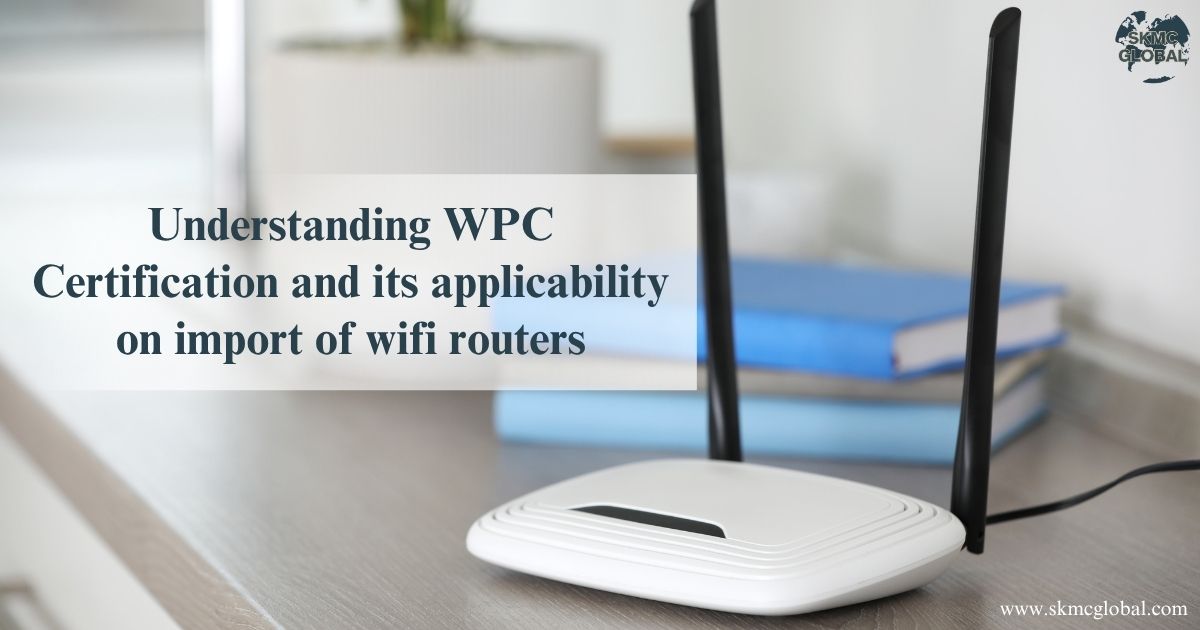 Understanding WPC Certification and its applicabil...
Jun 23,2025
Understanding WPC Certification and its applicabil...
Jun 23,2025
-
 Procedure to take EPR registration for battery was...
Jun 21,2025
Procedure to take EPR registration for battery was...
Jun 21,2025
-
 3PL Logistics...
Jun 19,2025
3PL Logistics...
Jun 19,2025
-
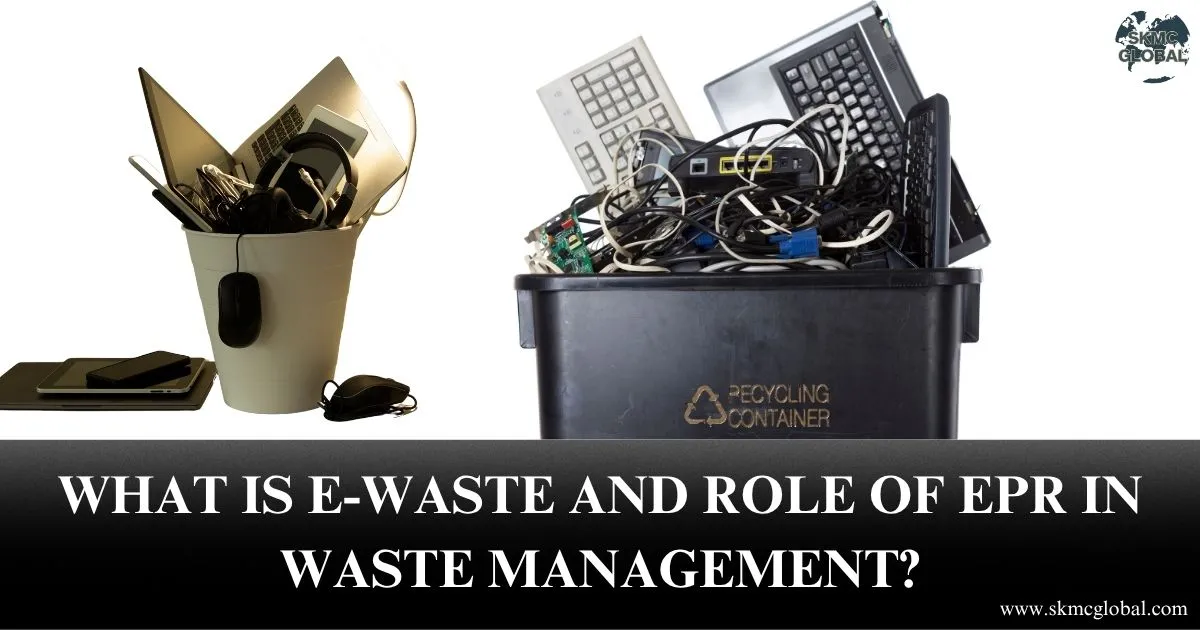 What is E-Waste and role of EPR in Waste Managemen...
Jun 17,2025
What is E-Waste and role of EPR in Waste Managemen...
Jun 17,2025
-
 M&A Due Diligence in India: How to Spot Target Com...
Jun 16,2025
M&A Due Diligence in India: How to Spot Target Com...
Jun 16,2025
-
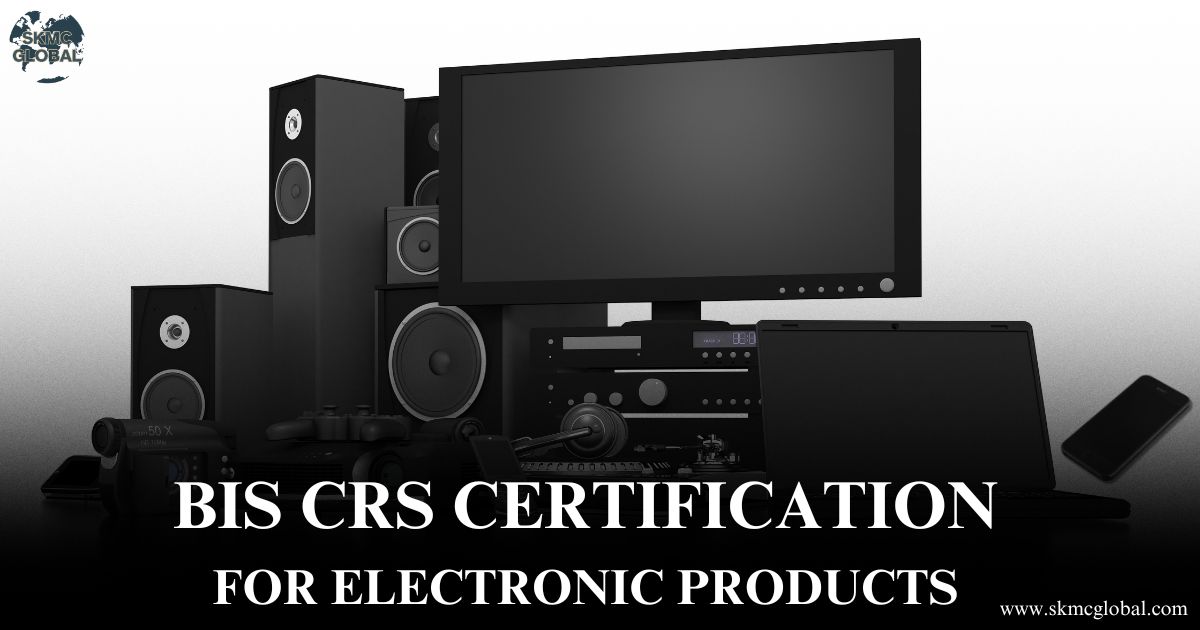 BIS crs certification for electronic products...
Jun 12,2025
BIS crs certification for electronic products...
Jun 12,2025
-
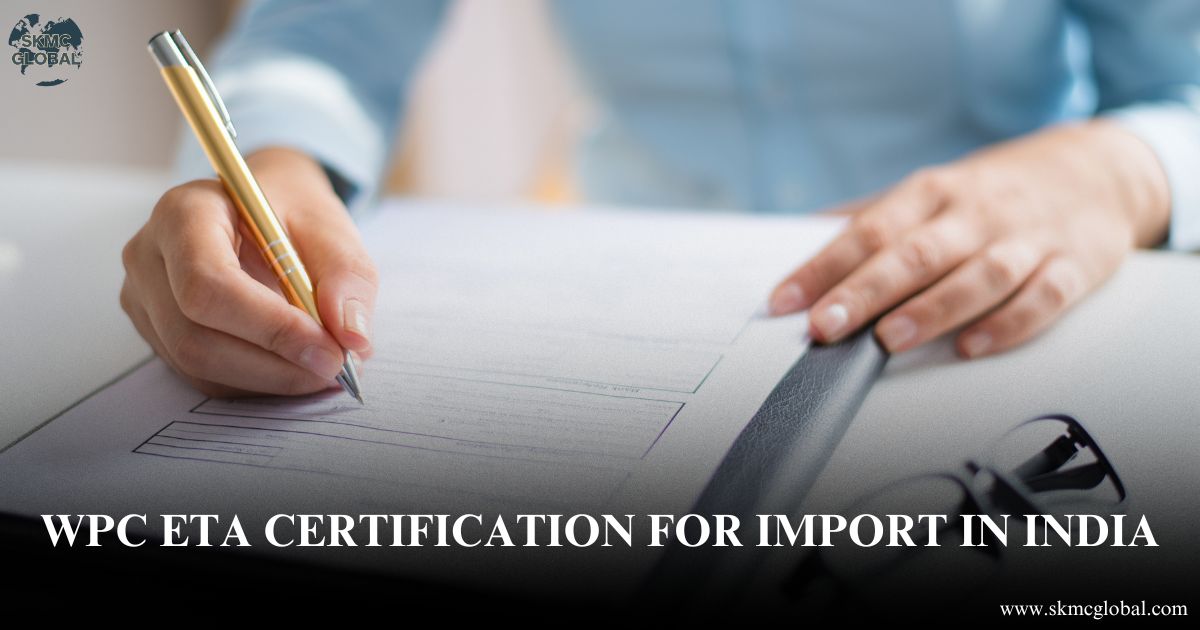 All you need to know about WPC ETA certification f...
Jun 11,2025
All you need to know about WPC ETA certification f...
Jun 11,2025
-
 What is CDSCO Registration under The Drugs & Cosme...
Jun 10,2025
What is CDSCO Registration under The Drugs & Cosme...
Jun 10,2025
-
 Procedure to Take CDSCO Registration in India: A C...
Jun 09,2025
Procedure to Take CDSCO Registration in India: A C...
Jun 09,2025
-
 All You Need to Know About AERB Registration...
Jun 07,2025
All You Need to Know About AERB Registration...
Jun 07,2025
-
 Understanding POSH (Prevention of Sexual Harassmen...
Jun 03,2025
Understanding POSH (Prevention of Sexual Harassmen...
Jun 03,2025
-
 Chartered Accountant's role in financial managemen...
May 23,2025
Chartered Accountant's role in financial managemen...
May 23,2025
-
 5 Things to keep in your mind while running payrol...
May 17,2025
5 Things to keep in your mind while running payrol...
May 17,2025
-
 Why BIS Certification is Crucial for Importers and...
May 15,2025
Why BIS Certification is Crucial for Importers and...
May 15,2025
-
 Top 7 Reasons Indian Entrepreneurs Are Switching t...
May 07,2025
Top 7 Reasons Indian Entrepreneurs Are Switching t...
May 07,2025
-
 Incorporation of Company in Japan...
Apr 24,2025
Incorporation of Company in Japan...
Apr 24,2025
-
 How to set up a Representative Office in Singapore...
Apr 14,2025
How to set up a Representative Office in Singapore...
Apr 14,2025
-
 BIS certificate for medical equipments...
Apr 09,2025
BIS certificate for medical equipments...
Apr 09,2025
-
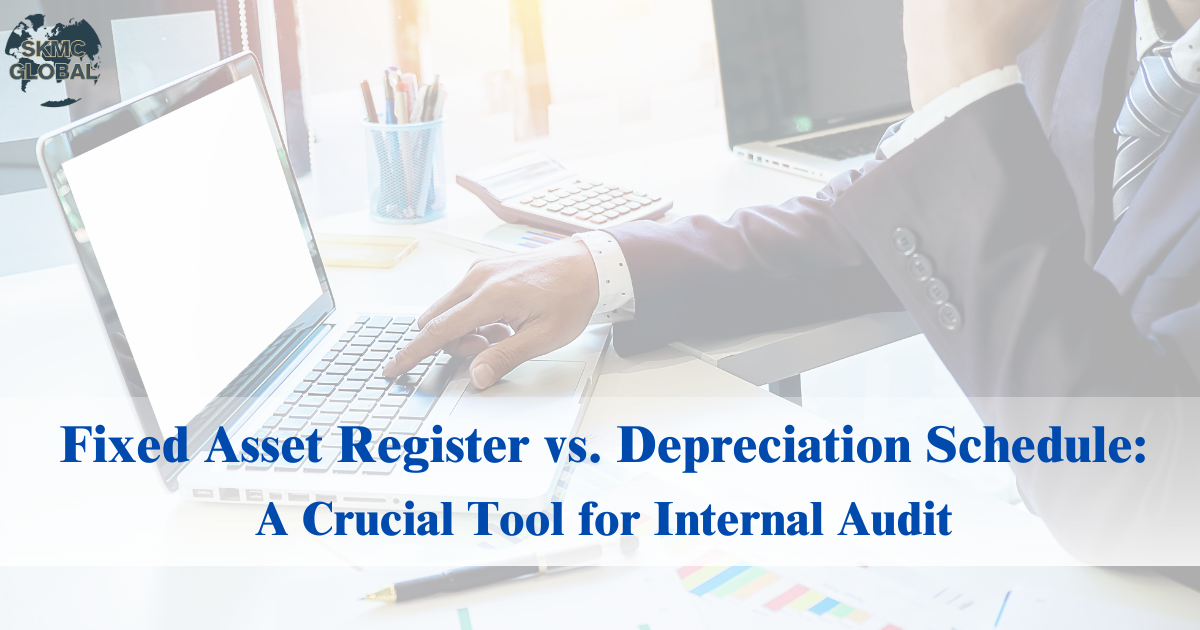 Fixed Asset Register v/s Depreciation Schedule: A ...
Apr 02,2025
Fixed Asset Register v/s Depreciation Schedule: A ...
Apr 02,2025
-
 Role of AI in Accounting...
Mar 26,2025
Role of AI in Accounting...
Mar 26,2025
-
 Capital Structure & its Impact on Profitability...
Feb 21,2025
Capital Structure & its Impact on Profitability...
Feb 21,2025
-
 Union Budget 2025...
Feb 01,2025
Union Budget 2025...
Feb 01,2025
-
 What is EPR in Plastic waste Management? ...
Jul 12,2022
What is EPR in Plastic waste Management? ...
Jul 12,2022
-
 Lithium-ion Battery Recycling Plant Setup in India...
May 10,2022
Lithium-ion Battery Recycling Plant Setup in India...
May 10,2022
-
 Setting up E-waste Recycling Plant Setup...
Jan 12,2022
Setting up E-waste Recycling Plant Setup...
Jan 12,2022
-
 Applicability of Labour Laws in India...
Jul 15,2021
Applicability of Labour Laws in India...
Jul 15,2021
-
 Basis to Outsource Finance and Accounting Services...
Oct 31,2021
Basis to Outsource Finance and Accounting Services...
Oct 31,2021
